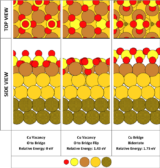A University of Alabama fellow shows that AI models learn to simulate atomic interactions.
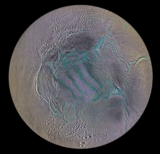

Seawater synergy
A University of Washington fellow learns about oceans, combining observation with large-scale simulations.

Processors and plasmas
A fellowship alumnus helps himself and others to research on Argonne’s Aurora supercomputer.
Sidebar: Science on stage
Madeleine Kerr was a double major in physics and theater at Harvey Mudd College and studied acting at a London conservatory for a semester. She produces and directs plays about scientists, casting a researcher in each role, from lead actor to set designer. She hopes the work will get scientists to reflect on their work. […]
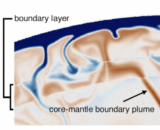
‘Earth’s evil twin’
A UCSD fellow’s geodynamic model offers answers to stubborn questions about Venus’ surface.

Computing that serves
A University of Maryland fellow models how infectious disease moves through populations.

Interview: The nuts and bolts of blood flow
Notable program alum Amanda Randles models blood circulation — and is a role model for beginning scientists.
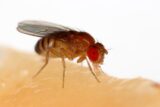
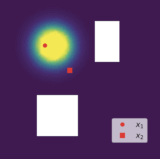
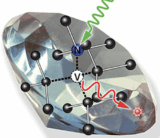

Knowing the unknowns
A Georgia Tech fellow models renewable energy and other problems with ever-changing unknowns.
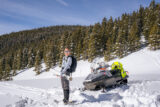
Unpacking snow
A UC Berkeley fellow applies machine learning to snowpack monitoring and more.
Sidebar: Quantum roots
Rahul Sahay’s quantum mechanics research started at his undergraduate school, the University of California, Berkeley. For his final project, working with DOE Computational Science Graduate Fellowship alumnus Norman Yao, he worked on the interface between many-body physics —the interactions of lots of particles with one another — and the theories underpinning quantum computing. Sahay likes […]
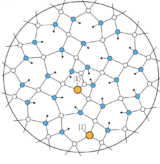
Sculpting nature
A Harvard University fellowship recipient works to create quantum phases of matter.

Categorical imperative
A Montana State fellow charts a path from physics and modeling to a form of pure math called category theory.
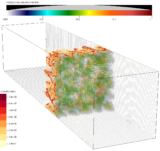
Predicting chaos
A Caltech fellowship recipient works on the physics underlying turbulence, or the chaotic gain of energy when fluids move in unpredictable ways.
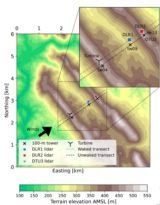
Scale-tamer
A recent program alum interweaves large and small scales in wind-energy and ocean models.
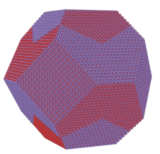
Exploring electrons
At UC Berkeley, a fellow applies machine learning to sharpen microscopy.
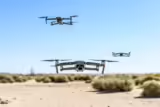
Subduing software surprises
A Cornell University fellowship recipient works on methods for ensuring software functions as expected.
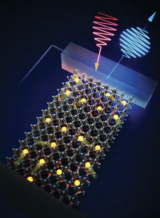
‘Crazy ideas’
A UCSD engineering professor and former DOE CSGF recipient combines curiosity and diverse research experiences to tackle nanoscale questions and energy applications.

Star treatment
A UT Austin-based fellow blends physics and advanced computing to reveal cosmic rays’ role in stellar events.

New home for science and tech talk
With the fifth season’s first episode, a DOE CSGF-sponsored podcast launches a website.

Bolt basics
A Rice University fellow simulates the ins and outs of the familiar fasteners in pursuit of lean machines.

‘Putting it all together’
A Vanderbilt University fellowship recipient applies math, physics and computation to sort out semiconductor defects.

